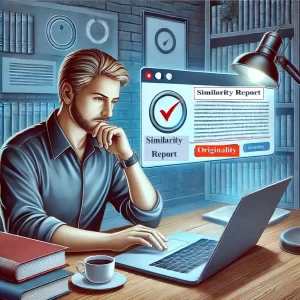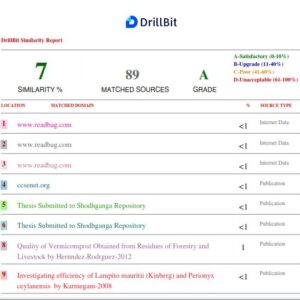
How Collaboration Tools Can Help Ensure Integrity in Group Projects
Group projects are a regular aspect of academic and professional environments, providing students the chance to work together, leverage their strengths, and gain insights from each other. These projects can present challenges in maintaining academic integrity, especially when multiple contributors collaborate on the same document and share responsibilities. Collaboration tools can greatly enhance integrity in group projects by assisting teams in organizing their work, tracking contributions, and ensuring proper attribution and transparency throughout the process. This guide outlines how collaboration tools can support integrity in group projects and promote ethical teamwork.
Organizing Tasks and Responsibilities with Project Management Tools
A key challenge in group projects is effectively dividing responsibilities and maintaining accountability for each task. Project management tools such as Trello, Asana, or Monday.com enable teams to decompose projects into tasks, allocate responsibilities, and establish deadlines for each component. This clarity enables each team member to grasp their role, ensuring fair contributions and minimizing the chances of last-minute rushes that may result in shortcuts or plagiarism..
How It Encourages Integrity: Assigning tasks clearly allows for transparency and accountability in each member’s contributions. When accountability issues come up, project management tools offer a documented trail that enables the team to address concerns in a constructive manner. A clear task structure promotes ethical participation from everyone and alleviates pressure that could result in dishonest practices.
Tracking Contributions with Collaborative Document Platforms
Document collaboration tools such as Google Docs, Microsoft Teams, and Notion enable several users to edit the same document simultaneously. These platforms allow group members to view each other’s contributions, add comments, and review changes effortlessly. Google Docs features a version history tool that logs edits, enabling users to see who made particular changes and when.
How It Encourages Integrity: Version history ensures that all contributions are original and simplifies the process of identifying potential plagiarism or uncredited sources. This openness fosters a culture of respect among members, as everyone’s contributions are clear and accountable. It prevents individuals from making unauthorized changes or claiming credit for others’ work, fostering a collaborative and equitable environment.
Improving Communication and Transparency with Messaging Tools
Miscommunication can occasionally result in unintended plagiarism or misunderstandings regarding task assignments. Messaging tools that are integrated with collaboration platforms such as Slack, Microsoft Teams Chat, or WhatsApp enable teams to keep communication clear and ongoing throughout the project. These tools enable team members to share ideas, pose questions, and tackle any issues that come up.
How It Encourages Integrity: Consistent communication minimizes the likelihood of misunderstandings or duplicated efforts, which can result in unintentional plagiarism. Messaging tools create a record of conversations, which simplifies the process of clarifying any discrepancies and ensures that every member understands their role and responsibilities. Moreover, open communication fosters an atmosphere in which team members feel at ease seeking clarification on citation or content usage practices.
Ensuring Proper Attribution with Citation Management Tools
Tracking sources accurately can be challenging when several individuals are involved in research and content creation. Citation management tools such as Zotero, Mendeley, and EndNote assist teams in organizing and sharing sources, making sure that all references are accurately recorded and consistently cited. These tools enable teams to establish shared libraries, ensuring that everyone has access to the same sources and citation guidelines.
How It Encourages Integrity: A shared citation management tool helps avoid unintentional plagiarism by providing all members with access to consistent references and citation formats. These tools minimize the likelihood of citation errors by automatically formatting references in the selected style. A dependable system for tracking sources allows team members to acknowledge original authors more effectively and uphold academic integrity in their work.
Avoiding Version Conflicts and Duplication with File Sharing Platforms
File-sharing platforms such as Google Drive, Dropbox, and OneDrive enable teams to store and share files in one central location, minimizing the chances of version conflicts or duplicate efforts. These platforms allow teams to store drafts, research notes, and final versions in an organized folder structure that is accessible to all members. This setup guarantees that every team member has access to the most current version while keeping previous versions available for reference.
How It Encourages Integrity: Storing all project files in a central repository helps team members avoid confusion about which document is the latest and who made specific changes. This structured approach minimizes the chances of unintentional duplication or unauthorized changes while promoting transparency in the group’s workflow. Every member can access all materials, fostering collaboration and building trust among everyone.
Setting Clear Milestones with Calendar and Reminder Tools
Effectively managing time in group projects can be challenging, and last-minute pressure frequently results in errors, such as hurried citations, insufficient paraphrasing, or unintentional plagiarism. Integrated calendar and reminder tools with platforms such as Google Calendar, Asana, or Microsoft Outlook assist teams in setting milestones, scheduling check-ins, and tracking upcoming deadlines.
How It Encourages Integrity: A clear timeline with milestones minimizes the chances of last-minute tasks, which can result in subpar quality or issues with academic integrity. When teams establish incremental goals, they can take the time to thoroughly review each aspect of the project, verify the accuracy of citations, and uphold the quality of the work. Effective time management enables individuals to follow ethical standards and deliver their highest quality work.
Encouraging Accountability with Shared Document Permissions
Document permissions, found on platforms such as Google Docs and Microsoft Teams, enable project managers or team leaders to manage who can edit or view a document. These permissions help guarantee that only selected team members can implement specific changes, particularly when responsibilities are shared among members. Teams can utilize commenting and suggestion modes to review edits prior to fully integrating them.
How It Encourages Integrity: By managing permissions, teams can ensure that each member’s contributions are clear and that accountability is upheld throughout the project. Restricting editing rights on final drafts helps to avoid unauthorized changes or last-minute edits that might affect the project’s integrity. Document permissions enhance security, ensuring team contributions are clear and minimizing the risk of conflicts or misunderstandings.
Utilizing Plagiarism Detection Tools for Final Review
Tools for detecting plagiarism, such as Turnitin, Grammarly, and Quetext, are available to help ensure that any unintentional plagiarism is identified prior to submission. Conducting a final review of the project allows team members to verify that all sources are properly cited and that no unintentional plagiarism has been included in the work.
How It Encourages Integrity: Employing plagiarism detection tools as a concluding measure enables teams to identify any overlooked citations or instances of paraphrasing that might closely resemble the original. This final review ensures that we avoid unintentional plagiarism and strengthens the team’s dedication to delivering original and ethically responsible work.
Conclusion
Collaboration tools provide various methods to improve integrity in group projects through enhanced organization, transparency, accountability, and communication. By integrating these tools into their workflow, teams can ensure clear roles, monitor contributions, manage sources, and steer clear of common issues related to academic dishonesty. Group projects provide important learning opportunities, and utilizing collaboration tools effectively ensures that all team members participate fairly and ethically. These tools aid in the successful completion of group projects while fostering habits of integrity and respect for intellectual property, which will be advantageous for students in their future academic and professional collaborations.

